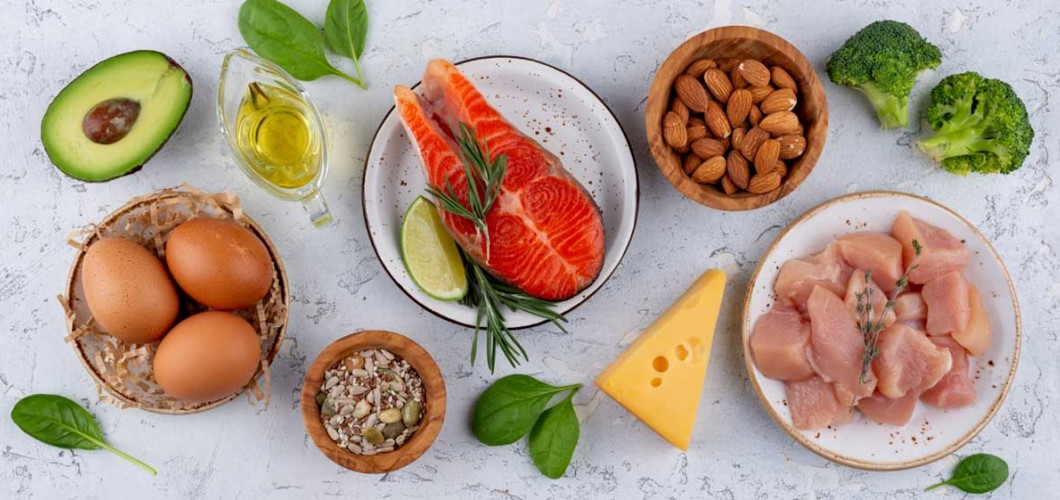
Protein Diet: An Effective Method for Weight Loss
What is the Protein Diet?
The protein diet is a nutrition plan that focuses on high protein intake to meet the body's needs. In this diet, carbohydrates and fats are limited, while protein sources are the main nutrients. The protein diet supports muscle growth, speeds up metabolism, and keeps you full for a long time. It is also an effective method for weight loss.
Benefits of the Protein Diet
1. Supports Weight Loss
High-protein diets not only limit calorie intake but also help the body burn more fat. Protein makes digestion more challenging, leading to more calories burned. Additionally, protein-rich foods provide a feeling of fullness, helping you avoid unnecessary snacking.
2. Increases Muscle Mass
Protein is the building block of muscle development. Regularly consuming protein can increase muscle mass. Increased muscle mass speeds up metabolism and helps burn more calories.
3. Boosts Metabolism
Protein contributes to faster metabolism. The body burns more energy while digesting protein, which results in increased calorie expenditure and supports weight loss.
4. Keeps You Full for Longer
Protein is a food that takes longer to digest. Therefore, after consuming protein-rich foods, you will feel full for longer, helping you avoid overeating and promoting healthy weight loss.
5. Regulates Blood Sugar Levels
High-protein diets help maintain stable blood sugar levels. Blood sugar fluctuations can trigger hunger, but protein-rich foods help provide a more balanced blood sugar level.
How to Implement the Protein Diet?
When following the protein diet, you should increase the proportion of protein in your diet and limit other macronutrients. Here are some tips for creating a healthy and effective protein diet plan:
1. Protein Sources
The protein diet should be enriched with the following food sources:
Meat: Chicken, turkey, red meat, lamb, beef, etc.
Fish and Seafood: Salmon, tuna, sardines, and other fish high in omega-3 fatty acids.
Eggs: A rich source of protein.
Legumes: Chickpeas, lentils, beans, etc., are excellent plant-based protein sources.
Dairy Products: Milk, yogurt, cheese, which are rich in calcium and protein.
Protein Supplements: For athletes and people doing intense exercise, protein powders or protein bars can be beneficial.
2. Limit Carbohydrates and Fats
When following the protein diet, it is important to limit carbohydrate intake. This will encourage the body to use fat for energy. Limit carbohydrate intake to whole grains, vegetables, and foods with a low glycemic index. Also, choose healthy fat sources like olive oil, avocados, and nuts.
3. Regular Meals and Snacks
The protein diet includes regular meals along with snacks. This helps balance blood sugar levels and prevents overeating. It is important to include quality protein sources in each meal.
Sample Protein Diet Menu
Breakfast:
2 boiled eggs
1 slice of whole-grain bread
Avocado slices
A cup of unsweetened green tea
Lunch:
Grilled chicken breast
Salad made with mixed greens
Olive oil and lemon dressing
Snack:
A handful of almonds or walnuts
A slice of cheese
Dinner:
Salmon
Roasted broccoli and asparagus
1 tablespoon of olive oil
Evening Snack:
Yogurt with some fruit slices
Things to Consider When Following a Protein Diet
Drink Enough Water: The body requires more water when following a protein diet. Sufficient water intake supports kidney function and helps flush out toxins.
Maintain a Balanced Diet: It’s important not only to focus on protein but also to maintain a balance of vitamins and minerals. Don't neglect the intake of vegetables and fruits.
Long-Term Application: While the protein diet can be effective in the short term, it is advisable to supplement it with a balanced diet for long-term results. Otherwise, some nutrients might be lacking.
Conclusion
The protein diet is an effective method for healthy weight loss and muscle growth. High protein intake boosts metabolism, promotes fat burning, and keeps you full for longer. However, it’s essential to balance the body's needs while following this diet. You can create a personalized protein diet plan to achieve long-term success.

Leave a Comment